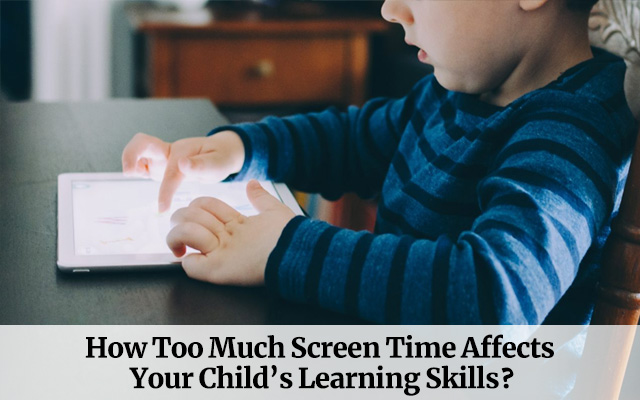In today’s fast-paced digital world, gadgets have become an indispensable part of our lives. From studying to working, everything is done using machines. For children, smartphones and tablets are now tools for learning, offering access to online classes, tutorials, and educational apps.
While technology has benefits, the rising screen time among kids is causing various health and developmental issues. Explore how excessive screen time affects your child’s learning skills.
Difficulty Focusing on Tasks
The fast-paced nature of smartphones—switching from one app to another or jumping from one notification to the next—makes it challenging for children to focus on one activity for a prolonged period.
This constant multi-tasking environment reduces their ability to concentrate, a crucial skill for effective learning. Over time, this habit can hinder their academic performance and productivity.
Developmental Delays and Stress
Excessive screen time can interfere with the natural development of a child’s cognitive and social skills. It may delay younger children’s language development, problem-solving abilities, and creativity. Additionally, the constant engagement with screens can lead to stress, as kids often feel overwhelmed by the endless flow of information.
Eye Problems
Prolonged screen time can cause eye strain, headaches, and even long-term vision problems like myopia. Beyond physical issues, too much screen time prevents children from engaging in deep, reflective thinking. This skill, essential for grasping complex concepts and critical reasoning, takes a back seat when children are glued to their screens.
Impact on Physical Activity
Excessive use of gadgets reduces physical activity, leading to health issues like obesity and poor motor skills. With sufficient outdoor play, children can experience opportunities to develop coordination, strength, and overall well-being.
What Can Parents Do?
- Set Screen Time Limits: Establish clear rules for how much time your child can spend on devices daily.
- Encourage Breaks: Ensure they take breaks during study sessions to rest their eyes and mind.
- Promote Outdoor Activities: Encourage hobbies like sports, art, or reading to balance their routine.
- Introduce Screen-Free Zones: Make spaces like the dining room and bedrooms free of screens to reduce dependence.
- Lead by Example: Be mindful of your screen time to set a positive example.
Conclusion
Excessive screen time is a growing concern, but with proper guidance and balanced habits, children can reap the benefits of technology while minimizing its adverse effects. Let’s work together to create a healthier relationship with screens for the next generation!
Enroll your child in our top CBSE school in South Kolkata and help them create a balanced routine to become a healthy and focused adult. Contact today!!

